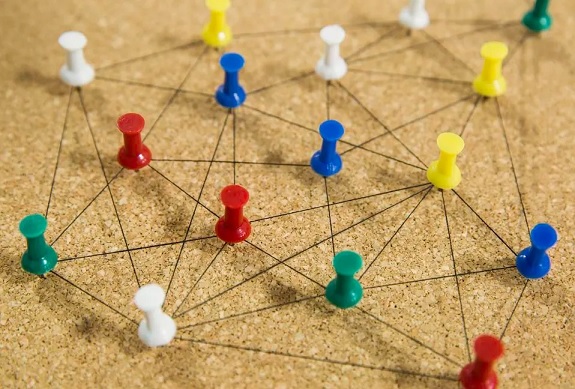In today’s fast-paced, interconnected world, connections have become vital in shaping our personal, professional, and digital experiences. Understanding the significance of connections, from friendships to networking and from digital systems to mental well-being, can help us appreciate how they enhance our lives and the ways we can leverage them. This article explores the different types of connections, their roles, and the ways to foster meaningful interactions.
Table of Contents
Understanding Connections: Connections
Connections refer to the bonds, relationships, or links between people, systems, or concepts. These bonds are essential to forming relationships, enhancing professional growth, or even building digital systems. Each type of connection serves a unique purpose, whether it is personal bonding, career networking, or even the interaction between devices in technology.
Connections impact almost every aspect of our lives. They influence the way we communicate, collaborate, and function within different environments, whether in society, the workplace, or online.
Types of Connections
Connections can be categorized into various types based on their roles in our lives. Below, we examine some of the most impactful types of connections.
Personal Connections
Personal connections are bonds formed between individuals, often rooted in emotions, trust, and mutual respect. These can be family relationships, friendships, or romantic partnerships. Personal connections provide emotional support, security, and a sense of belonging, contributing significantly to our happiness and mental well-being.
Benefits of Personal Connections
- Emotional support during tough times
- Companionship and reduced feelings of loneliness
- Increased happiness and self-esteem
Professional Connections
Professional connections are relationships formed in a workplace or career-oriented environment. These can be networking contacts, mentors, colleagues, or even clients. Professional connections are essential for career advancement, learning opportunities, and industry insights.
Importance of Professional Connections
- Opportunities for career growth and mentorship
- Access to new job prospects and collaborations
- Knowledge-sharing and skill development
Building a strong network of professional connections can provide access to resources, support, and potential partnerships that might not be available otherwise.
Digital Connections
In the digital era, online connections have become as significant as face-to-face relationships. Digital connections occur when individuals, devices, or systems link through technology. This includes social media connections, email, and virtual communities. These digital connections allow us to stay connected with people worldwide and facilitate faster communication and collaboration.
Forms of Digital Connections
- Social media (Facebook, LinkedIn, Twitter)
- Online communities and forums
- Internet of Things (IoT) connections, like smart homes and devices
Digital connections have made it easier to reach out, share ideas, and communicate instantly, changing how we interact socially and professionally.
Mental and Emotional Connections
Mental and emotional connections refer to the internal relationships we form within ourselves or with others through empathy, shared experiences, and emotional understanding. Mental connections can also describe the bond we feel with concepts, memories, and values that shape our outlook on life.
Role of Mental and Emotional Connections
- Enhances empathy and compassion
- Improves mental well-being through self-reflection
- Fosters a deeper understanding of others and oneself
By nurturing emotional connections, we can experience a sense of fulfillment and empathy, both of which contribute to a happier and more harmonious life.
Why Connections Matter
Connections shape the quality of our lives in numerous ways. From personal happiness to professional achievements and even mental health, connections are at the heart of human experience. Here are some reasons why connections are so crucial.
Boosting Mental Health
Studies show that having strong social connections can reduce anxiety, depression, and loneliness. People who maintain healthy relationships tend to have better mental health outcomes. Emotional support, companionship, and shared experiences act as a buffer against stress and mental illness.
Enhancing Career Success
Professional connections provide access to resources, knowledge, and opportunities that help in career development. Networking can lead to job opportunities, collaborations, and industry insights, making it a valuable tool for professional growth.
Fostering Innovation and Learning
Connections allow for the exchange of ideas and knowledge, fostering innovation and creativity. Whether in a professional setting or a community of interest, sharing ideas can lead to new discoveries and advancements. In digital networks, information spreads quickly, facilitating faster learning and growth.
Ways to Build and Strengthen Connections
Strengthening connections requires time, effort, and sometimes even creativity. Here are some effective strategies for building and nurturing meaningful connections.
1. Embrace Open Communication
Communication is the foundation of any strong connection. Make an effort to listen actively, be present, and express your thoughts clearly. Being open and transparent fosters trust and understanding in both personal and professional relationships.
Tips for Better Communication
- Practice active listening
- Avoid distractions during conversations
- Show empathy and understanding
2. Show Genuine Interest in Others
People are more likely to connect when they feel valued. Show genuine interest in their lives, experiences, and thoughts. Remembering small details about someone’s life or checking in occasionally can strengthen your bond over time.
Ways to Show Interest
- Remember important dates and events
- Follow up on previous conversations
- Ask thoughtful questions
3. Participate in Networking Events
Networking events provide an excellent opportunity to meet new people and expand your professional connections. Whether attending a seminar, workshop, or social gathering, these events open doors to potential mentors, collaborators, and friends.
Types of Networking Opportunities
- Conferences and industry meet-ups
- Community or volunteer events
- Online webinars and virtual meetings
4. Use Digital Platforms Wisely
Social media and online platforms are valuable tools for maintaining and building connections. Join interest-based groups, engage in meaningful conversations, and stay updated on your connections’ lives.
Popular Platforms for Digital Connections
- LinkedIn for professional networking
- Facebook groups for community building
- Twitter for industry news and updates
5. Practice Gratitude and Appreciation
Expressing gratitude is a simple yet powerful way to strengthen relationships. Whether thanking a friend, colleague, or mentor, showing appreciation nurtures trust and fosters goodwill.
How to Show Gratitude
- Send a thank-you note or message
- Offer to help with a project or task
- Celebrate others’ achievements
Challenges in Building Connections
While connections are valuable, building and maintaining them can sometimes be challenging. Here are some common obstacles to forming and nurturing connections and ways to overcome them.
1. Time Constraints
With busy schedules, finding time to connect meaningfully with others can be difficult. Setting aside dedicated time for relationships, even in small doses, can make a difference.
Solution: Prioritize quality over quantity by making the most of short interactions, like a quick message or a meaningful call.
2. Fear of Rejection
Many people fear rejection when reaching out to others, which can prevent them from forming new connections. It’s essential to overcome this fear and remember that reaching out to others often leads to positive outcomes.
Solution: Start small and build confidence. Small gestures like a greeting or compliment can ease you into forming new connections.
3. Miscommunication
Miscommunication or misunderstandings can harm relationships. Clear and open communication is crucial to avoid unnecessary conflicts or hurt feelings.
Solution: Aim to clarify any misunderstandings quickly and approach conversations with empathy.
4. Dependence on Digital Interactions
Relying solely on digital connections can sometimes feel less personal, and maintaining a strong bond may require occasional in-person interactions or more personal gestures.
Solution: Balance digital interactions with occasional personal contact, like a video call, to strengthen your connection.
Conclusion
Connections are the fabric that binds society, enhancing personal well-being, career success, and even innovation. By understanding the importance of different types of connections—personal, professional, digital, and emotional—we can build stronger relationships and lead more fulfilling lives. While building connections can present challenges, practicing open communication, empathy, and appreciation can strengthen these bonds. Embracing the value of connections and actively nurturing them empowers us to create a supportive, resilient network that enriches our lives.


